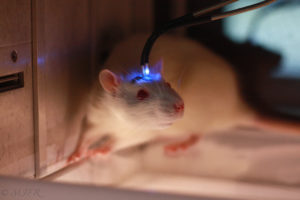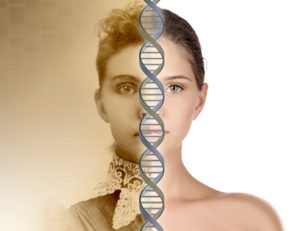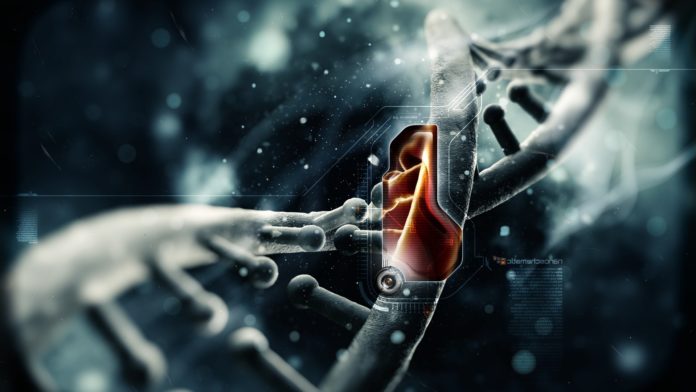The concept of inheriting memories from your ancestors without having to experience them personally. In psychology, “Genetic memory is a memory present at birth that exists in the absence of sensory experience and is assimilated into the genome over long spans of time”.
The first-ever reported studies on genetic memory were conducted on mice by Dr. Brian Dias at Emory University. He reported that mice inherit particular smell memories from their fathers even when they never have had experienced the smell firsthand and also, they’ve never met their father.
This was explained as the theory of ‘Epigenetics’ which is the study of inherited changes in gene expression, changes which are inherited but not to the DNA. For example, life experiences are not directly coded in the DNA, can actually be passed on to the offspring.

Carl Jung, a famous psychologist theorized that humans are born with memories and experiences of their ancestors stamped on the DNA, though humans are not necessarily unlocking them, there is a probability that most basic survival instincts might come from a long-ago trauma experienced by an ancestor.
You may ask that “How these memories/experiences of our ancestors got stored in our DNA in the first place?”.
To answer the question, Dr. Berit Brogaard says that the memories or experiences have to shape the genetic material in a certain way so that they can be carried on to the descendants.
According to Dr. Berit Brogaard in some sense, instincts can be considered as a form of memory we share with our ancestors, they are carried on in the genes and by that logic it is genetic, and it shapes the brain in a certain way. By this theory, instincts are a simple form of genetic memory.

Dr. Berit adds that there are new things that can be unlocked, these new things are abilities or ease of doing certain things which we don’t have to learn in the standard way. For instance, people who suffer severe brain injuries in accidents, develop some extraordinary skills post-accident.
The new skills or abilities they have discovered might not have to be locked down in their genetic memory but there is a good chance of them being there and are discovered after the injury. These abilities may include becoming a math genius, musical ability, or sudden artistic capability.
The current state of the art:
Scientists have discovered that the important set of genetic instructions humans get come from their ancestors, but the environment, around them, can also make some genetic changes too. Researchers discovered that these kinds of environmental genetic changes can be passed down for 14 generations in an animal – the largest span ever observed in a creature.
The study was on a dynasty of C. Elegans Nematodes (roundworms)





